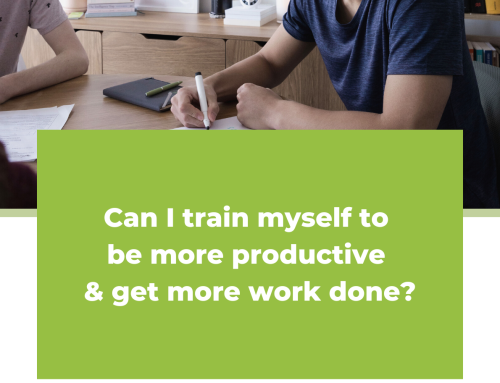As the end of the year and exams draw closer, you may be feeling exhausted and overwhelmed. You may just assume that you’re stressed, which is normal around exam time right?
These feelings may go beyond stress and may indicate the initial signs of academic burnout. It is important you recognise the warning signs and know how to tackle it, as avoiding academic burnout this close to exams is vital to be able to achieve your full potential.
What is academic burnout?
Academic burnout is a relatively new phenomenon but is something many students have experienced over the course of their studies. It is characterised by emotional exhaustion, distant attitudes towards peers and studies as well as the perception of oneself as incompetent and not performing adequately (1,2). Stress is a major predictor of burnout and has a clear link to illness, psychologically and physically (2). This is why knowing how to cope with stress as well as taking a break is an important part of your study routine.
What is stress?
Stress is a psychological and physiological response to sources of tension that challenges an individual’s ability to cope. Not all stress is bad. However, the stress you feel when you perceive you have inadequate resources to cope, can be harmful. This is what can lead to illness as well as burnout. Knowing how to handle this negative form of stress is what will keep you going until exams and will help to maximise performance.
Ways to minimise the effects of burnout and stress:
- Exercise! Even just 30 minutes of exercise a day can help to release the feel-good hormones, endorphins, and reduce the harmful stress hormone, cortisol. Excessive amounts of cortisol for long periods can make you sick. It also puts you at higher risk of developing cardiovascular disease, so you definitely want to keep cortisol levels low. If high-intensity exercise isn’t your thing, some low intensity walking or stretching can also be a very beneficial form of exercise.
- Get lots of sleep! Getting sufficient levels of sleep is essential to minimising stress and the negative consequences. Young adults require between 8-10 hours of sleep a night. When you are tired you are more likely to partake in high levels of emotional and risky decisions as your brain downgrades its activity to cope. It also leads to increased levels of stress and anxiety that can contribute to burnout. Sleep is also essential for clearing out toxins that build up in the brain. Without this, there can be severe consequences to your mental health and to your brain. So, make sure to maximise your chances of getting enough good quality sleep by putting down TikTok and going to bed at a reasonable time.
- Listen to music! Music is another effective coping strategy for stress and has been found to be as effective as exercise (3). Songs with underlying positive emotions are shown to help with relaxation and have been shown to have a calming effect. However, the genre of music and underlying emotion shows no significant influence on helping to manage stress. So, it is important to listen to the music you want to rather than what you feel like you should be listening to. So don’t be afraid to put on those guilty pleasures hits!
There is no one-size-fits-all method for coping with stress or avoiding burnout, but these easy strategies are a good place to start. Make sure to find what works for you and change up anything that’s not working. With the finish line in sight it is still important that you put aside time to take care of yourself as well as tackle those practice exams.
Post by Student Coach – Megan Ross
References
- Kilic R, Nasello JA, Melchior V, Triffaux J-M. Academic burnout among medical students: respective importance of risk and protective factors. Public health (London). 2021;198:187-95.
- Ríos‐Risquez MI, García‐Izquierdo M, Sabuco‐Tebar EdlÁ, Carrillo‐Garcia C, Solano‐Ruiz C. Connections between academic burnout, resilience, and psychological well‐being in nursing students: A longitudinal study. J Adv Nurs. 2018;74(12):2777-84.
- Vidas D, Larwood JL, Nelson NL, Dingle GA. Music Listening as a Strategy for Managing COVID-19 Stress in First-Year University Students. Front Psychol. 2021;12:647065-.






Leave A Comment